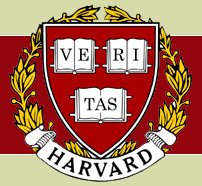
Introduction to the intellectual enterprises of computer science and the art of programming. This course teaches students how to think algorithmically and solve problems efficiently. Topics include abstraction, algorithms, data structures, encapsulation, resource management, security, software engineering, and web development. Languages include C, PHP, and JavaScript plus SQL, CSS, and HTML. Problem sets inspired by real-world domains of biology, cryptography, finance, forensics, and gaming. Designed for majors and non-majors alike, with or without prior programming experience.
This is CS50 OpenCourseware.
Computer Science 50 (otherwise known as CS50) is Harvard College's introductory course for majors and non-majors alike, a one-semester amalgam of courses generally known as CS1 and CS2 taught mostly in C.
Even if you are not a student at Harvard, you are welcome to "take" this course via cs50.tvby following along via the Internet. (The course's own website is at www.cs50.net.) Available at right are videos of lectures, sections (aka "recitations" or "precepts"), andseminars along with PDFs of all handouts. Also available at right are the course's problem sets and quizzes. If you have questions or would like to discuss the material with others, do join the course's Google Group.
If you're a teacher, you are welcome to adopt or adapt these materials for your own course, per the license.
If you'd like to take this course for real (on Harvard's campus or via the Internet) in order to receive feedback on work, grades, and a transcript, the course will next be offered throughHarvard Extension School (as "Computer Science E-50") in Fall 2013; you can register online starting in July 2013. You can also take this course through edX.
Special thanks to Dan Coffey, Shelley Westover, Andrew Hill, Colton Ogden, Ramon Galvan '16, and Kenny Boyle for the course's videos and to Rob Bowden '13, Daven Farnham, and Gabriel Guimaraes '17, Fall 2014's heads.
Copyright © 2014 – 2015, David J. Malan of Harvard University
This course's content is licensed by David J. Malan of Harvard University under a Creative Commons Attribution-Noncommercial-Share Alike 3.0 Unported License, which means that you are not only welcome to "take" this course,
you are free:
under the following conditions:
with the understanding that:

Harvard University is a private Ivy League research university in Cambridge, Massachusetts, established in 1636. Its history, influence and wealth have made it one of the most prestigious universities in the world.